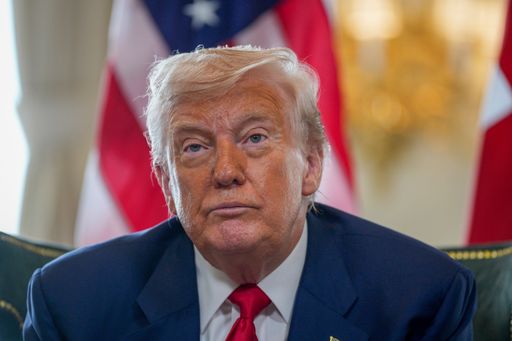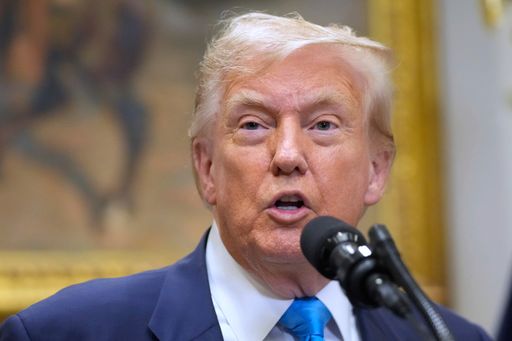The US-India trade deal is now on ice.
Hours after Indian Prime Minister Narendra Modi dismissed claims in the country’s Parliament that Washington played a role in the India-Pakistan ceasefire, US President Donald Trump announced a 25 percent tariff on Indian goods, with more penalties to come, this time linked to India's oil and defence trade with Russia.
"India is our friend," Trump wrote on Truth Social on Wednesday, before accusing the country of setting tariffs "far too high" and helping fuel Russia's war in Ukraine by continuing to buy oil and weapons from Moscow.
"Remember, while India is our friend... we have, over the years, done relatively little business with them because their tariffs are far too high, among the highest in the world. And they have the most strenuous and obnoxious non-monetary trade barriers of any country."
The Indian government responded with a short statement saying it was reviewing the move.
But the timing of the announcement has raised questions in both capitals and among trade negotiators who had just completed their fifth round of talks aimed at wrapping up a deal by the end of the year.
New Delhi had framed those talks as constructive. Trump's tariff decision caught Indian officials off guard, according to people briefed on the matter.

India at a disadvantage?
The breakdown comes as political tensions between the two sides have quietly resurfaced.
Modi, during public remarks in recent days, has repeatedly said the ceasefire between New Delhi and Islamabad was brokered without help from the United States, a statement that directly contradicts accounts from Trump.
Following the brief conflict between India and Pakistan in May, which the US stated threatened to escalate into a nuclear exchange, Trump and his administration have claimed nearly 30 times that the US brokered the ceasefire.
Islamabad has acknowledged the US's role and even nominated Trump for the Nobel Peace Prize, but New Delhi denies it, with Modi telling Indian Parliament, "No world leader asked us to stop the operation."
Trade had long been seen as a stabilising pillar in the US-India relationship. But fault lines remain. Washington wants full market access for American agricultural and technology exports. India has pushed back, citing domestic industries, especially dairy and farming.
India is currently one of America's largest trading partners but the trade imbalance stands at nearly $46 billion, in India's favour. That figure, along with India's deepening ties with Russia, and Modi's refusal to accept US role in truce with Pakistan appears to have made New Delhi a target in Trump's wider tariff strategy, which also includes new duties on Brazil.
The tariff escalation puts India at a disadvantage compared to countries like Vietnam and Bangladesh, where exporters already benefit from lower costs and fewer restrictions.
Indian trade bodies warned that demand for Indian goods could dip sharply unless clarity on the penalties emerges soon.
US, Pakistan strike 'massive oil reserves' deal
India's main opposition party, Congress, blasted Modi government over the tariff announcement by the US.
In a post on X, the Congress party wrote, "Trump slapped a 25% tariff on India, along with a penalty. The country is now bearing the cost of Narendra Modi's 'friendship'. Modi campaigned for Trump, hugged him eagerly, posed for photos, and made it trend on social media. In the end, Trump still imposed tariffs on India. India's foreign policy has completely failed."
Despite months of rhetoric about deepening economic ties and shared Asia-Pacific goals, the US and India are now drifting on key fronts — energy, defence, sanctions, and now trade.
After imposing tariffs on New Delhi, Trump announced that his administration has struck a trade deal with Pakistan as talks continue with other nations, ahead of his self-imposed August 1 deadline.
The US President added that an American company will develop Pakistan's (newly discovered) massive oil reserves.
"Maybe they'll be selling oil to India some day," Trump added.
Although trade negotiations between the US and India haven't formally ended, the latest move by Trump, layered with geopolitics and public messaging, has left both sides with less room to manoeuvre and more distance than either expected.
















